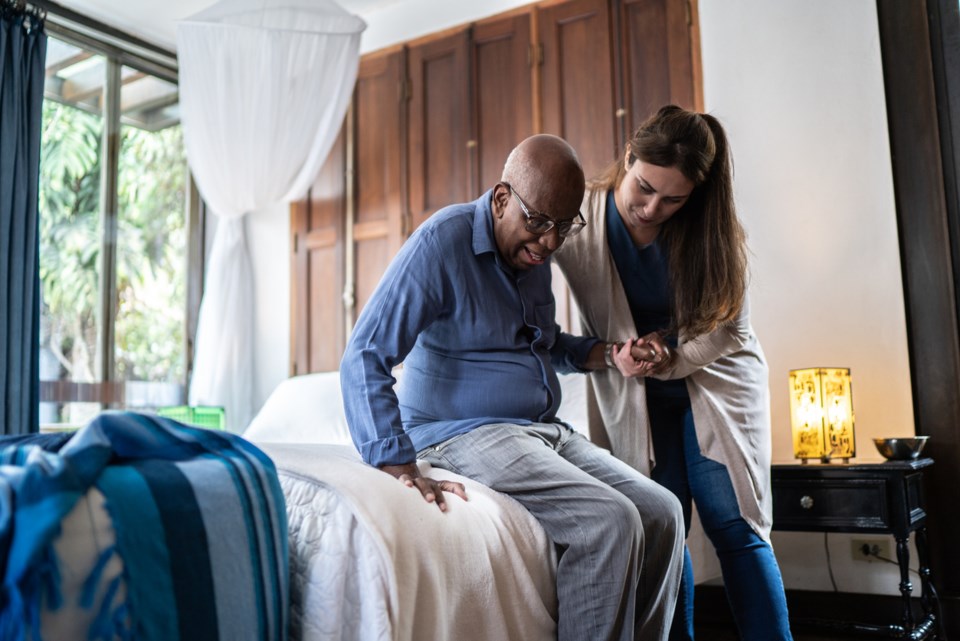Imagine needing assistance with daily activities due to age, illness, or a life-changing event, and while your family wants to help, they aren’t able to provide the level of care you need.
The journey to finding the right care can be overwhelming. This is where adult caregiving becomes crucial, offering not just support but a compassionate relationship that fosters independence and dignity.
Adult caregiving: what does it mean, what does it entail, and who is best suited for the role?
While technically a job, being a caregiver for adults in need of assistance is ultimately more about the desire to create and maintain a relationship.
This is the experience of those involved in PLEA’s adult caregiving program.
“Many of our caregivers have the desire to create community,” says Bryan Robinson, program director at PLEA, an accredited, charitable community services organization that has operated throughout B.C. for more than 40 years. “Most already have a strong support network surrounding them, and they are eager to build on that.”
And in many cases, that expansion of community develops naturally within the adult caregiving program.
“When someone becomes a family caregiver with PLEA, all of a sudden, they are introduced to the rest of our caregivers and this greater community,” Robinson says. “And that suits the type of person who takes on this responsibility.”
There is also a list of formal requirements in order to be considered for the role of helping someone live as comfortably and as independently a life as possible.
First of all, an adult caregiver must be 21 years of age, be eligible to work in Canada, be able to communicate effectively with those in their care.
“We also like it when folks own their own home and have the space to be able to provide support for another person,” Robinson says.
In fact, many of those taking part are already professional caregivers, such as practical and registered nurses and healthcare workers.
“While the program doesn’t require this experience, it aligns with the passion these individuals have for caring for others,” Robinson says. “But it’s really more the innate caregiving instinct they have, wanting to support people in their community, and helping them through their challenges.
“A lot of them have personal stories that have given them the desire to provide the required support.”
So, how do some adults find themselves in need of care?
“They are regular, everyday people who have been referred to us for care after experiencing a traumatic medical event and deserve support,” Robinson says. “It’s so important that our caregivers not only provide care but also foster a sense of belonging, showing what a strong and healthy relationship looks like.”
Part of that involves integration within the family of the caregiver.
“We strongly believe relationships are key to what we do,” Robinson says. “And in many instances, the adults we care for really do become a part of the family.”
Typically, matches between caregivers and the adult are long-term, although there is also provision for shorter stays, for example, during a period of rehabilitation.
Supporting all of this is PLEA’s commitment of 24/7 assistance via telephone and a group of professionals on call.
“We have a robust team that includes licensed practical nurses and one-to-one support workers,” Robinson says. “Plus, as we screen and consider new caregivers, we provide them with training and an in-depth orientation.
“It’s a beneficial system that provides caregivers with support from PLEA, ensuring the person receiving care can live with maximum comfort and independence.”
To find out more about PLEA’s Adult Caregiving opportunity, and to see if it’s right for you, visit Adult Caregiving - Foster Caregiver Opportunities BC - PLEA.



